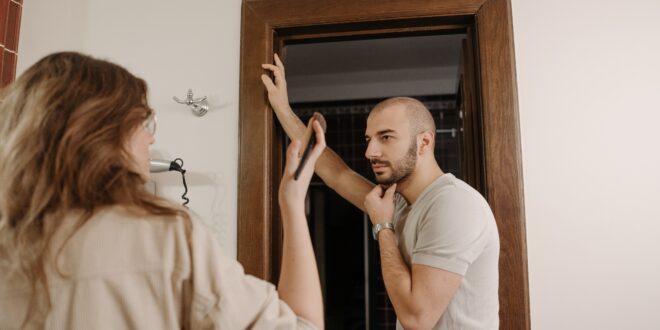It’s a common refrain: relationships are hard work. Fights are normal and rough patches are par for the course.
True as that may be, however, these platitudes can distract from legitimate causes for concern in one’s social and romantic life — including signs that a relationship may have become, or always was, toxic.
What is a toxic relationship?
Any relationship [between people who] don’t support each other, where there’s conflict and one seeks to undermine the other, where there’s competition, where there’s disrespect and a lack of cohesiveness.
While every relationship goes through ups and downs. A toxic relationship is consistently unpleasant and draining for the people in it, to the point that negative moments outweigh and outnumber the positive ones. Toxic relationships are mentally, emotionally and possibly even physically damaging to one or both participants.
Toxic dynamics can be mended with conscious time, effort, and self-awareness. But both people need to be willing to change and accept responsibility to move forward. Here’s exactly how to fix a toxic relationship:
1. Understand whether the relationship actually can be fixed.
Yes, toxic relationships can change. But that comes with a very big if. A toxic relationship can change if and only if both partners are equally committed to overcoming it with lots of open communication, honesty, self-reflection, and possibly professional help, individually and together. It will require each of you to examine your actions and do inner work. If you or your partner is not willing to truly put in the effort, the relationship will not change and should be ended.
Additionally, if you don’t see any improvements after going through these steps, the toxicity could be too much to overcome, and it may be better for you to move on.
2. Be willing to walk away.
Before you attempt to confront a toxic partner, make sure your self-esteem and self-confidence are good enough for you to know that you will be all right if they end the relationship with you, or if you end up having to end it with them. If you’re not there yet, seek support. If you want to improve your relationship with a toxic partner, you have to be willing to leave that relationship if nothing changes. If you’re unwilling to do so, your partner will ultimately know that regardless of what they do, you really won’t leave.
3. Look for the ABCD’s.
Someone can recognize a toxic relationship if there is a constant presence of ABCD—accusations, blame, criticisms, and demands.
If these behaviors are rampant in your relationship, talk to your partner about them and agree to work together to end this cycle. When you find yourself falling into any of these behaviors, notice how you are escalating the argument by resorting to these toxic behaviors. It’s helpful to remember that it’s not you versus your partner; it’s both of you versus the communication problem. This collaborative mentality can help you reconnect with your partner naturally.
4. Use your voice.
Often in toxic relationships, you find yourself walking on eggshells to avoid upsetting your partner, which over time can build up resentment. If you feel anxiety about communicating something to your partner because you’re afraid of their response, take note. In a relationship, it’s essential you feel relaxed and that you are able to be yourself and bring up concerns as they come up.
Your partner might not be aware that their behaviors are causing you to tread lightly. When you are upset about something, resist the urge to sweep it under the rug. Instead, take the time to thoughtfully exercise your voice (it’s a muscle, so keep using it!) and share how you’re feeling and how it may be creating distance in the relationship. Ask them to recognize how their behavior is affecting you so you can rebuild trust in the connection.
5. Start taking up space.
In toxic relationships, one person is often not honoring themselves or their own needs. You have opinions, likes, and dislikes, but you find yourself constantly doing something other than what you feel is right. You don’t want to hurt their feelings or get them upset. Over time, the relationship can shift into one-sidedness, and your needs become less visible to care for.
If you’ve observed this dynamic in your relationship, it’s necessary to speak up so you don’t continue perpetuating this behavior. Help your partner recognize their toxic patterns and cycles, which includes triggers, feelings, and behaviors. Express how you’re feeling with your partner, and let them know that you want to take up space in the relationship so you feel included too.
6. Seek out help.
Someone can recognize a toxic relationship if one or both partners feel worse about themselves when they’re in the relationship. It can be self-worth, confidence, or body image. Being around them doesn’t feel stable; in fact, you feel like you live in a constant state of unease of trying to be better to feel good enough.
Healthy love—real, nurturing romance—doesn’t involve any acts of earning. You are good enough simply by being who you are.
If it’s reached this stage in your relationship, things have eroded enough that you may need to bring a mental health professional into your interactions to give you perspective.
7. Learn to trust yourself and stick to your guns.
Toxic relationships often involve gaslighting, a cognitive strategy that creates a subtle, unbalanced power dynamic that seeks to control the moment in the relationship. If you continually question your sensitivity level and judgment, it can rapidly devolve into you distrusting your own feelings and thoughts.
Cultivating mindfulness practices can be key to learning how to trust yourself and your own experience. Your truth is not up for debate.
A few ways to do that: Take down notes or keep a journal to notice the inconsistencies between what you’re being told and what is actually happening. When you are fully present and do not second-guess your reactions, a gaslighter will have a harder time distorting reality. Let them know that their perception is not your experience, and if they continue to speak to you disparagingly, you will not engage until they’re willing to listen to you.
8. Together, explore healthier ways to express criticism.
Constructive criticism can be a healthy expression in all contexts of a relationship. But if someone habitually criticizes you in a judgmental or condemnatory way that is no longer helpful, it is crossing the line.
There is criticism about everything. Every time you do something, they always have a comment about what you did wrong or how you could have done it better. Ultimately, you feel unappreciated.
To counteract this, Li advises it may be as simple as both of you learning how to express criticisms in a “compliment sandwich” or how to construct a dialogue where you can both listen to each other’s point of view, so it’s not just one person’s monologue.
9. Be OK with having uncomfortable conversations.
Toxic relationships tend to be filled with little white lies—on both sides. If your partner tends to have caustic reactions when things don’t go their way or when you disagree, you may have gotten used to simply telling them what they want to hear because you “don’t want to waste time explaining the truth.
But healthy relationships are two-way street, and honesty is paramount for you to meaningfully connect with your partner. (And for you to be able to speak your mind!) When you feel like you are about to tell a white lie, take a moment to consider what would happen if you told the truth instead. If you feel yourself hesitating to bring up something or your instinct is to avoid the discomfort, take this as an opportunity to lean in. This is the perfect time to practice effective, clear communication so these small lies don’t become bigger lies and spread out of control.
10. Don’t move on from conflicts without having a plan for change.
There is a pattern of escalation (emotions intensifying) and rupture (fighting and conflict) without proper resolution. Partners may move on, without a plan in place for change and how to approach conflict differently.
If there is a history of conflict avoidance and lack of personal accountability, establishing a safe space where each partner feels like they can share their feelings, needs, and desires without resorting to ABCD. If you or your partner grew up in a home where those issues go unaddressed, it’s possible you may not have learned how to honestly and directly talk about an issue. With patience and positivity, these conversations can be initiated and become a natural way of approaching conflict without any of that toxic energy.
Fixing toxic relationships is no easy task, but it is possible with hard work from both parties. Make sure you have buy-in from your partner, and pay attention to whether meaningful change is happening over time as you do the work.
Remember, you deserve to be in a healthy, happy relationship that makes you feel good. Don’t settle for anything less.
This Content has originally written by Julie Nguyen and published on April 26, 2020. No Copyright/IPR breach is intended.
Photo by Pavel Danilyuk from Pexels
 Shadesofpink.in A Women's World By Women
Shadesofpink.in A Women's World By Women





I’d like to find out more? I’d care to find out some additional
information.
It’s the best time to make some plans for the longer term and
it’s time to be happy. I’ve read this publish and if
I may just I desire to recommend you some interesting things or suggestions.
Perhaps you could write subsequent articles relating to
this article. I want to learn even more things
approximately it!
Ηello, this weekend is good in fav᧐r of mе,
as this point in time i am reading this enormous educational paragraph here
at my residence.
Glad to hear that you find it useful.
Keep on visiting us for more such information.
It’s really a great and helpful piece of information. I am glad that you just shared this helpful information with us.
Please stay us informed like this. Thank you for sharing.
Glad to hear that you find it useful.